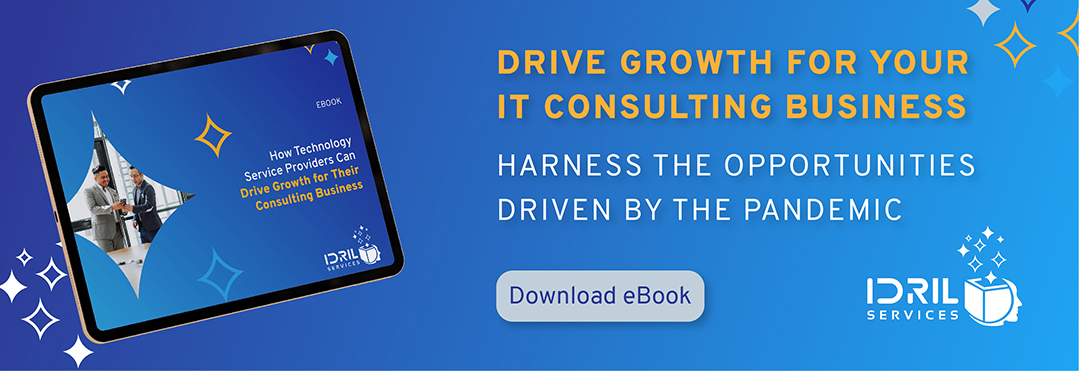Constantly emerging technologies open a plethora of opportunities for technology consultants, but just like the organizations putting forth these projects – the consulting organizations themselves may have limitations on the resource availability and ability limiting the opportunities they can address.
A lone-wolf approach is doomed for failure in a constantly evolving technology world. A need to continually upgrade in-house expertise to keep up with emerging technologies can render even the big consulting firms uncompetitive and costly. Strategic alliance and teaming partners provide a great alternative to fighting the battle alone. A rapidly growing trend – the teaming relationship is a strategic alliance between two or more consulting firms and contractors with complementary skill-sets and resources.
Differentiated subject matter expertise means players from different corners of the technology ecosystem can join hands and harness mutual strength and abilities to present one strong front and compete for more opportunities. And shared resources allow them to be more cost-competitive with their enterprise counterparts.
Today’s fast-paced, dynamic technology world demands such a multi-prong growth strategy like teaming relationships for SMB businesses to remain profitable in a highly competitive and costly environment.
A typical teaming relationship is formed between two distinct players, each bringing specific subject-matter-expertise and resource pool to the table. It is usually created at the early stages of a proposal submission process and is limited to the project or proposal in question. A very lucrative trend is for bigger or more established organizations to partner with small or diverse organizations to leverage the reserved quota benefits offered by the federal government.

The benefits of such teaming partnerships are evident to both parties involved. The small or diverse business can get a piece of the pie for opportunities by utilizing the resources that the bigger organization brings to the table in terms of skill-sets, subject-matter expertise, past experiences and capabilities. At the same time, the bigger organization gets a seat at the table by capitalizing on the diversity of its teaming partner. And this mutually beneficial arrangement is also advantageous for the buyer as it reduces the hassle of dealing with multiple vendors while allowing them to meet their diversity quota.
The three most common teaming relationships are contractor-subcontractor relationships, joint ventures, and mentor-protégé relationships.
Contractor-Subcontractor Relationship
A contractor-subcontractor relationship thrives in a highly dynamic market like the technology segment. Typically, one party has expertise on specific technologies, and the other party, usually the prime contractor, can bring different subject matter experts to the table under one brand to deliver a comprehensive solution to the buyer. The prime contractor enters into a buying contract with the customer and a supplier agreement with the subcontractor.
This approach allows the parties to remain independent entities but still associate to pursue potential projects together, enabling each party to win the project as a consolidated entity and still enjoy their piece of the proverbial pie.
Joint Venture
A joint venture is when two or more companies combine their resources, capital, efforts, skills and knowledge to undertake a business endeavour for a long-term or a project-specific venture.
The parties do not form a separate legal entity in a contractual joint venture but associate themselves in a standard, arms-length arrangement. Conversely, in a project-specific venture, also known as a special purpose joint venture, the parties form a separate legal entity, typically in the form of a corporation, partnership, or limited liability company.
Mentor-Protégé
A mentor-protégé relationship is usually between a large, established firm with long term industry standing – the mentor and a smaller, inexperienced firm – the protégé looking to enhance its capabilities and to improve its performance.
Mentors provide various forms of assistance to protégés to help them successfully compete for contracts and includes
- Guidance and oversight
- Exposure to and familiarization with laws, regulations, and rules
- Technical and management assistance
- Financial assistance in the form of equity investments or loans
- Formation of joint venture relationships to compete for larger contracts
Before entering into a teaming relationship, conduct a swot analysis for your organization. Conduct due diligence to understand your company’s strengths and available opportunities.
Finally, it reduces future conflicts and helps to establish a framework for engagement that clearly outlines your roles and responsibilities.
IDRIL excels at addressing complex IT challenges with transformative solutions & an agile approach. We are a minority, woman-owned, small business with a track record of successfully delivering end-to-end IT solutions to all sectors. We have the capability and know-how to combine different technologies and services, connect teaming partners and engage the right resources to develop solutions specific to certain industries. We are always looking for good teaming partners for our next ERP, CRM or Database Management project. Click here to see our upcoming opportunities and projects or to be added to our database for potential partnerships.


